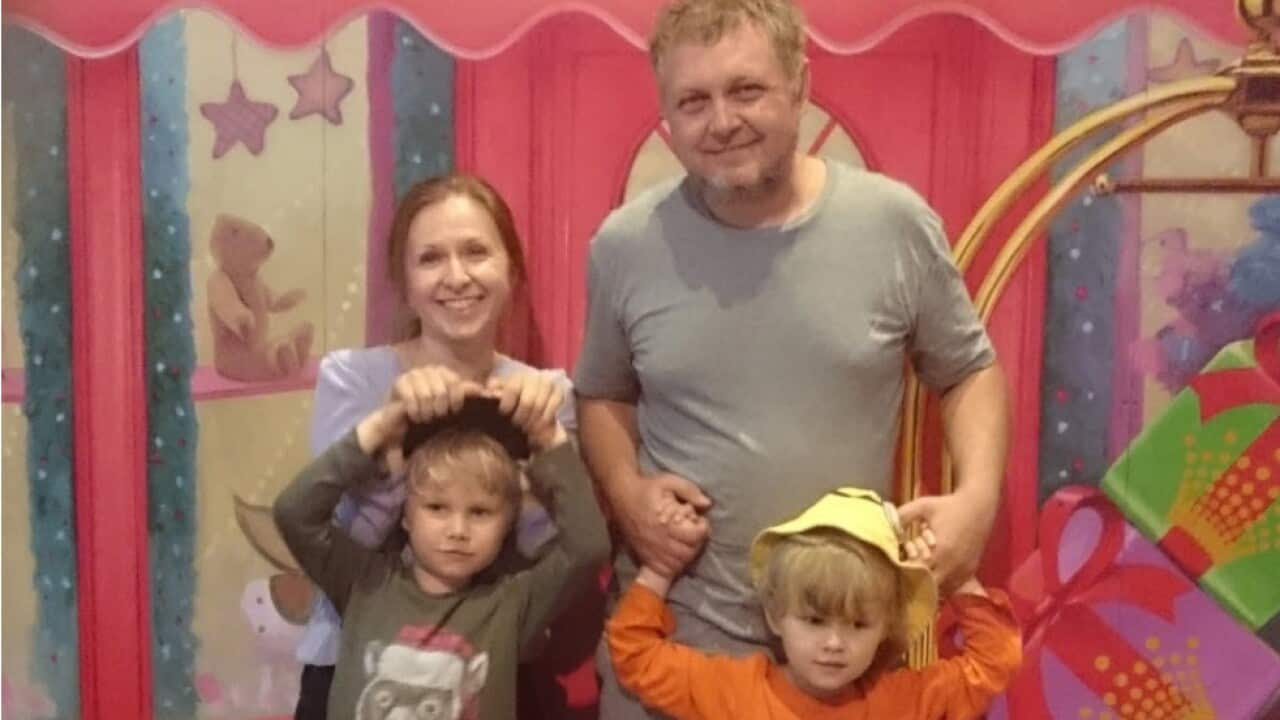Andrei Kravtsov, a philologist, researcher and translator, has called Melbourne home for 20 years.
In February 2020, he travelled to Moscow with his family for a two-month holiday, with return tickets for April. But three weeks before their flight home, they received a notification that their flight had been cancelled.
"Maybe you can call me short-sighted, but at the beginning of the year no one could predict the scale of the threat from coronavirus," Mr Kravtsov says.
"There were some reports about the virus in China, and that is why we changed our route and didn't fly through China as we had originally planned."
Highlights
- A Melbourne family stranded in Moscow is hoping the airline they flew with to Moscow restarts operating flights to Australia soon
- The family of four has been stuck in Russia after their return flight in April was cancelled, leaving them without any money to buy air tickets and pay for hotel quarantine on their return
- Over 27,000 Australians are waiting to return home, but it could still take months despite the government raising the cap on international arrivals
The travel agent through whom the family bought the tickets informed them that they were not eligible for a refund because they had already undertaken one-way travel. But they would get a voucher for future flights with Etihad airline. So far, Etihad has not resumed flights to either Russia or Australia.
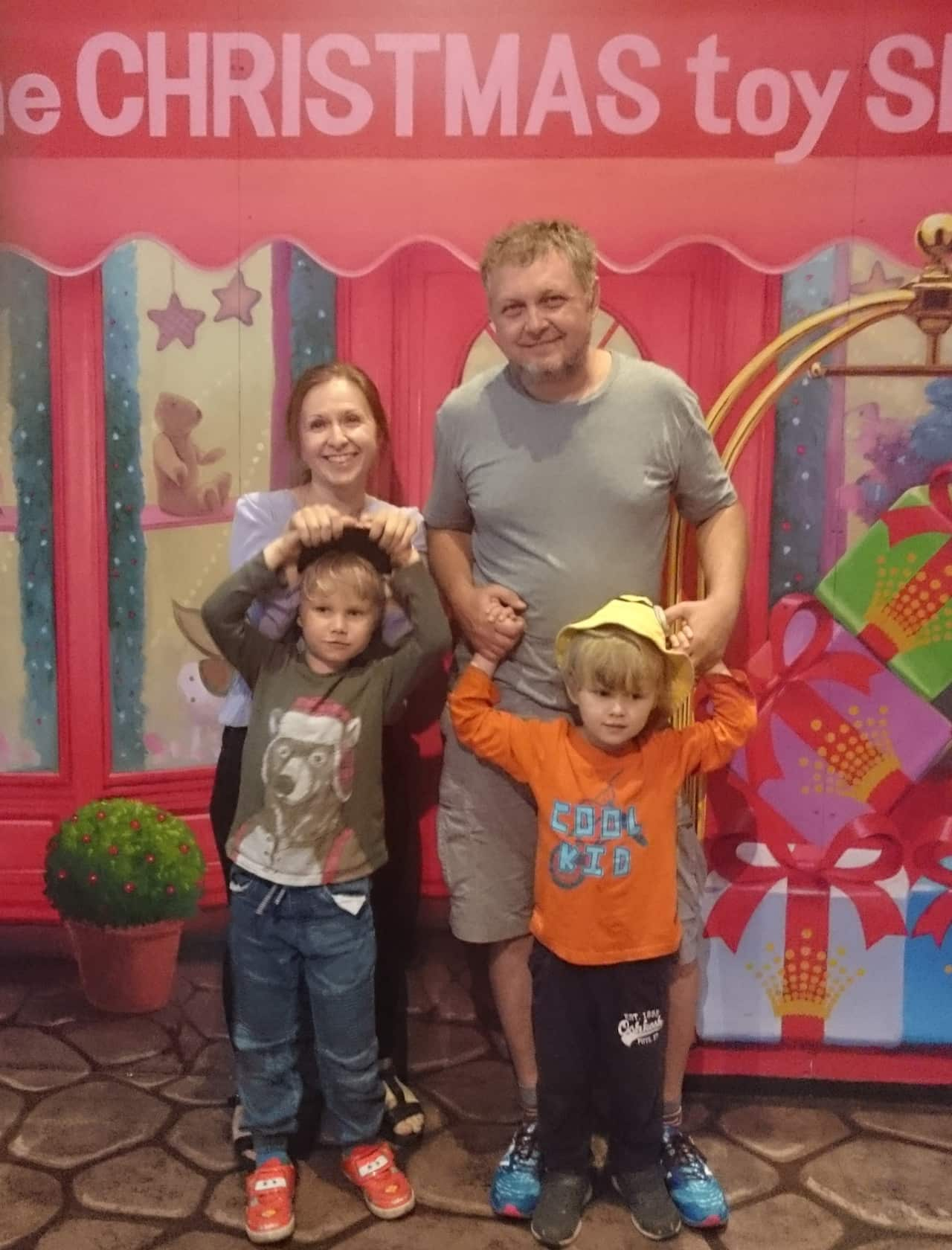
Mr Kravtsov says he is in touch with some people who travelled from Moscow to Australia via London, booking each flight separately. But for his family of four, this would be "too expensive and too risky".
"We are still hoping to use this airline voucher because we simply can't pay for new tickets plus for hotel quarantine in Melbourne," he told SBS Russian.
The financial difficulty is exacerbated by the fact that being a sole trader Mr Kravtsov has had no income since travelling to Moscow, and still has to pay rent for the family's apartment in Melbourne.
"We are in continuous correspondence with our real estate agent and the landlord asking for at least some discount. You can't move house being 14,000 kilometre away; there is simply no one to remove and save all our furniture and other belongings."
Contracting COVID-19
The coronavirus epidemic was at its peak in Moscow in May, recording a daily increase of 10,000 new cases.
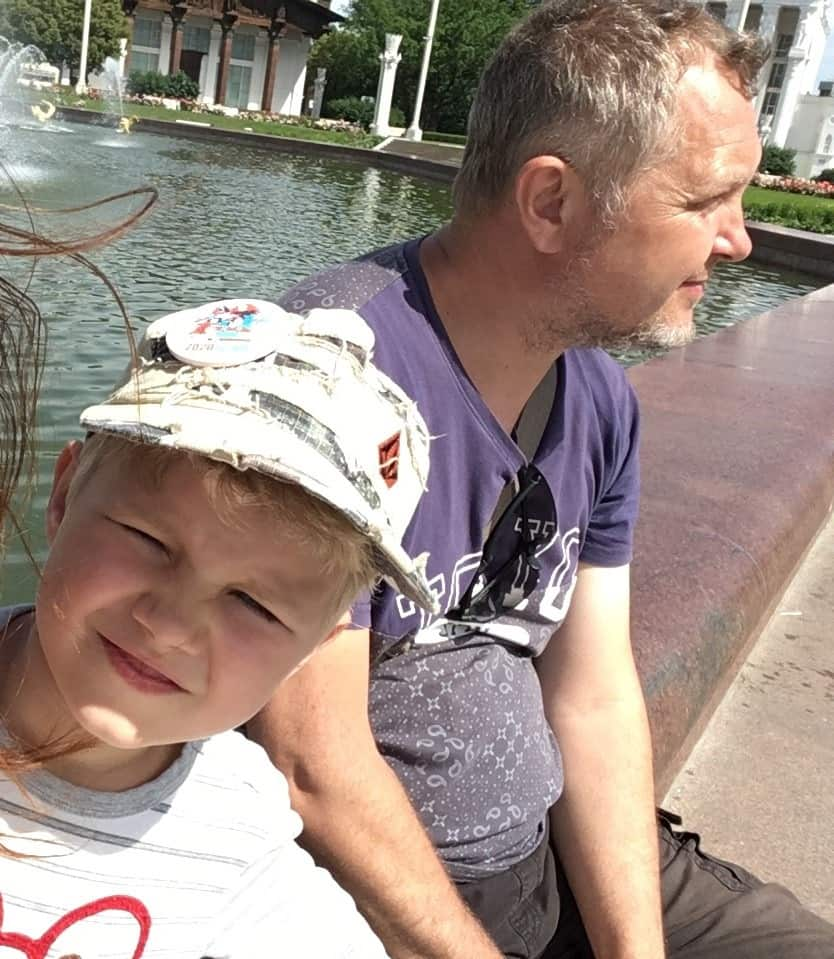
Mr Kravtsov says despite following all official recommendations and wearing face masks, he contracted COVID-19.
"First four days I was hoping it was just a cold."
"But when I couldn't bring down the temperature, it remained over 39°C all the time, and at night it was hard to breathe, we called an ambulance," he says.
"At that time, there were many coronavirus cases and a shortage of ambulances, but they came to us quickly. After several quick tests, they transferred me to the hospital and did a CT scan. It showed pneumonia with 50 per cent lung damage."
He said that he refused hospitalisation because hospitals were overcrowded and went home with antibiotics. There wasn't any special monitoring from authorities whether he self-isolated or not, only calls on mobile from his doctor to check his condition.
"Even if I wanted to leave the house, believe me, I could not do it. And not because someone controlled me, but because I had a terrible weakness, I felt terrible," said Mr Kravtsov.
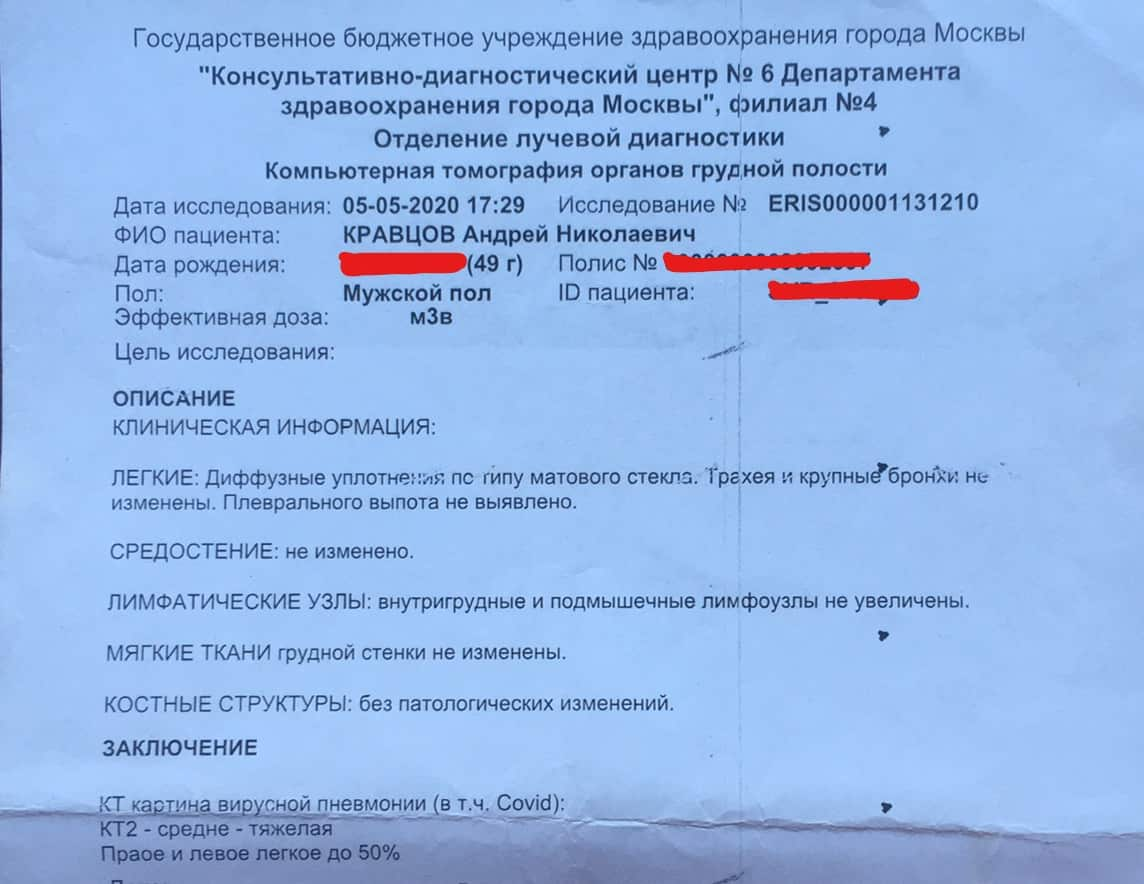
His wife and children didn't show any symptoms of COVID.
"Probably they had it too, but it went asymptomatic," he says.
Mr Kravtsov says he is still experiencing the effects of the disease on his body. But his main concern now is not his health but the financial hardship the family has fallen into.
"We don't receive any payments from Centrelink because we are overseas. There was only one $750 aid from the Australian government in May- that's it. All I feel is bewilderment and despair".
"It's just getting worse."
The government, last week, raised the cap on arriving international passengers from 4,000 to 6,000 per week. However, airlines operating flights to bring back stranded Australians wanted a significant boost to this number.
But with Etihad not operating any flights between Moscow and Australia, Mr Kravtsov says he has no option other than to wait.
"I feel lost and just don't know what to do next. We flew away for two months and never intended to stay here long," he says.
He says unless the government plans to evacuate Australians like him by special flights, there's not much that his family can look forward to.
"[The government] can help us to arrange the route probably, in the sense that they would give all the permissions that are needed. But we will have to pay for the tickets plus a two-week quarantine at the hotel upon arrival, too. And when we calculate all this; it's easier for us to stay here, honestly."
But having depleted all their savings, every passing day makes the wait more difficult. Mr Kravtsov says looking for work while waiting to return home, won't make sense.
"We can't start looking for a job here; what do we say to a potential employer who asks if we are staying here? We hope that we are not."
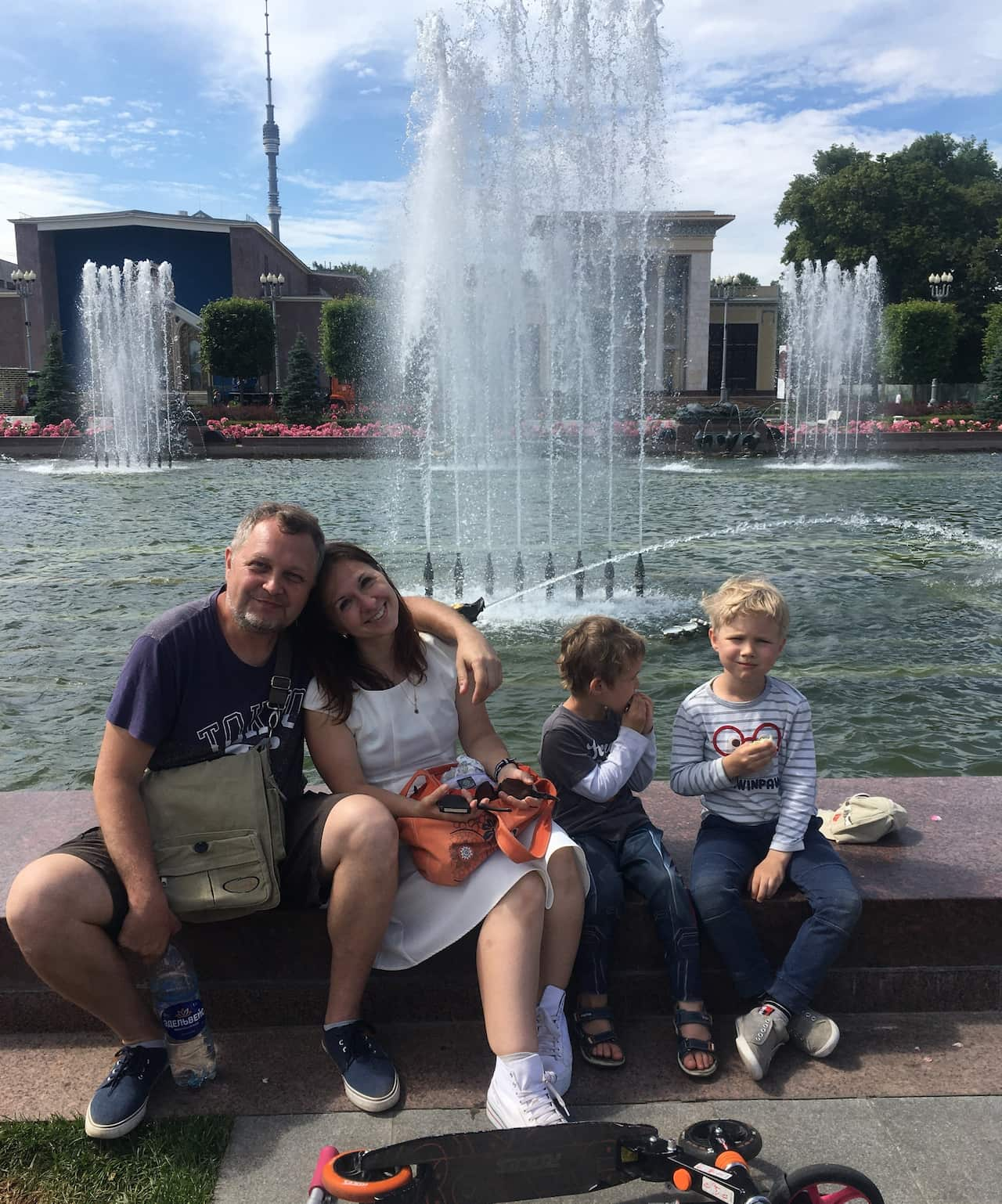
The Kravtsovs have registered with the Department of Foreign Affairs and Trade and regularly receive emails with updates on COVID-19 in Russia and the health advice.
More than 25,000 Australians are currently stranded overseas, and 3,500 of them are currently financially or medically vulnerable, according to the DFAT. Though the government has made a provision for financial assistance for them by way of a one-time loan, the government says it's exercised as a "last resort", and strict eligibility criteria apply.
Calls are growing for the government to arrange charter flights to bring Australians back from countries with higher number of Australians stuck, such as the United Kingdom, India, Philippines and Lebanon.
But Mr Kravtsov hopes that he would be able to use his flight voucher soon and when he finally returns to Melbourne, he wouldn't find himself and his family homeless, forced to sleep on the street.
